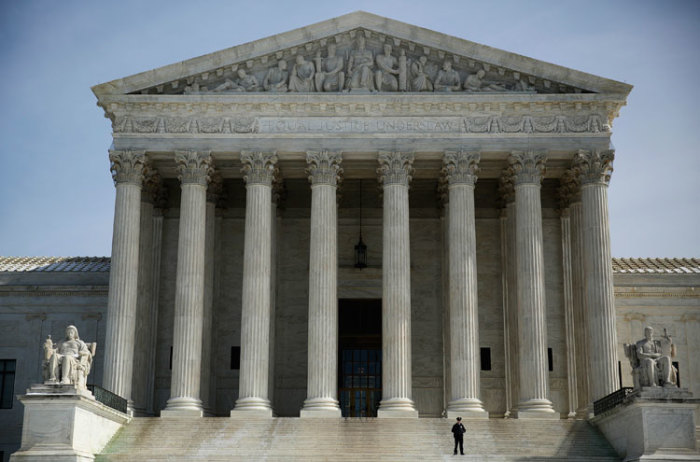Supreme Court Will Not Hear Case of Photographer Who Refused Gay Wedding

The U.S. Supreme Court on Monday declined to hear a case, Elane Photography, LLC vs. Willock, in which a wedding photographer was punished for declining to photograph a same-sex wedding ceremony.
"This essentially means the end of legal options for John and Elaine Huguenin for now," Alan Sears, president, CEO and General Counsel for Alliance Defending Freedom, said. ADF represented the Huguenins, owners of Elane Photography.
In 2006, Vanessa Willock sent an email to several wedding photographers in New Mexico asking if they would be willing to photograph her same-sex "commitment ceremony." (New Mexico did not redefine marriage to include same-sex couples until December 2013.)
"This is a same-gender ceremony. If you are open to helping us celebrate our day we'd like to receive pricing information," the email stated.
Elaine Huguenin informed Willock via email, "We do not photograph same-sex weddings, but again, thanks for checking out our site! Have a great day."
In court testimony, Huguenin made clear that she would serve the couple in other contexts. She was not declining to serve gays. She was declining to serve gay weddings because she believed that doing so would be in violation of her religious beliefs. Huguenin had also previously declined service to clients who asked her to photograph nude images and violent images.
Willock filed a complaint against Elane Photography, arguing that the company violated an anti-discrimination ordinance. The case made its way to the New Mexico Supreme Court, which found Elane Photography guilty and ordered the company to pay close to $7,000 to Willock.
"The injustice is difficult to overstate," Sears of ADF stated. "Make no mistake, this issue is all about the government forcing a citizen to communicate a message against her will and against her beliefs.
"To add insult to the outrage, a justice on the New Mexico Supreme Court has even gone so far as to tell the Huguenins that surrendering their freedom is 'the price of citizenship.'"
Russell D. Moore, president of the Ethics & Religious Liberty Commission of the Southern Baptist Convention, also expressed disappointment in the Supreme Court's decision to not hear the case. The case is about freedom of conscience, he argued.
"At issue is the fundamental question of whether the state can pretend to be a god over the conscience," Moore said. "No one is seeking to outlaw photographers from working at same-sex marriage or civil union ceremonies. At issue is whether these persons will be forced by the coercive power of the state to participate in something they believe to be sinful.
"The audacity of the New Mexico Supreme Court in saying that the crucifixion of conscience is the price of citizenship is breathtaking. This ruling is more in the spirit of Nero Caesar than in the spirit of Thomas Jefferson. This is damaging not only to the conscience rights of Christians, but to all citizens. When we decide, as a country, that state power trumps the rights of conscience, we are treading on self-evident, inalienable rights, granted not by government but by God."
ADF Senior Counsel Jordan Lorence, on the other hand, argued that the case was about freedom of speech.
"The First Amendment protects our freedom to speak or not speak on any issue without fear of punishment. We had hoped the U.S. Supreme Court would use this case to affirm this basic constitutional principle ...," he said.
Lorence added that ADF has several other clients in similar cases which the Supreme Court will have opportunities to weigh in on the issues, including wedding florists and bakers, and a t-shirt printer who declined to design a "pride festival" shirt.




























